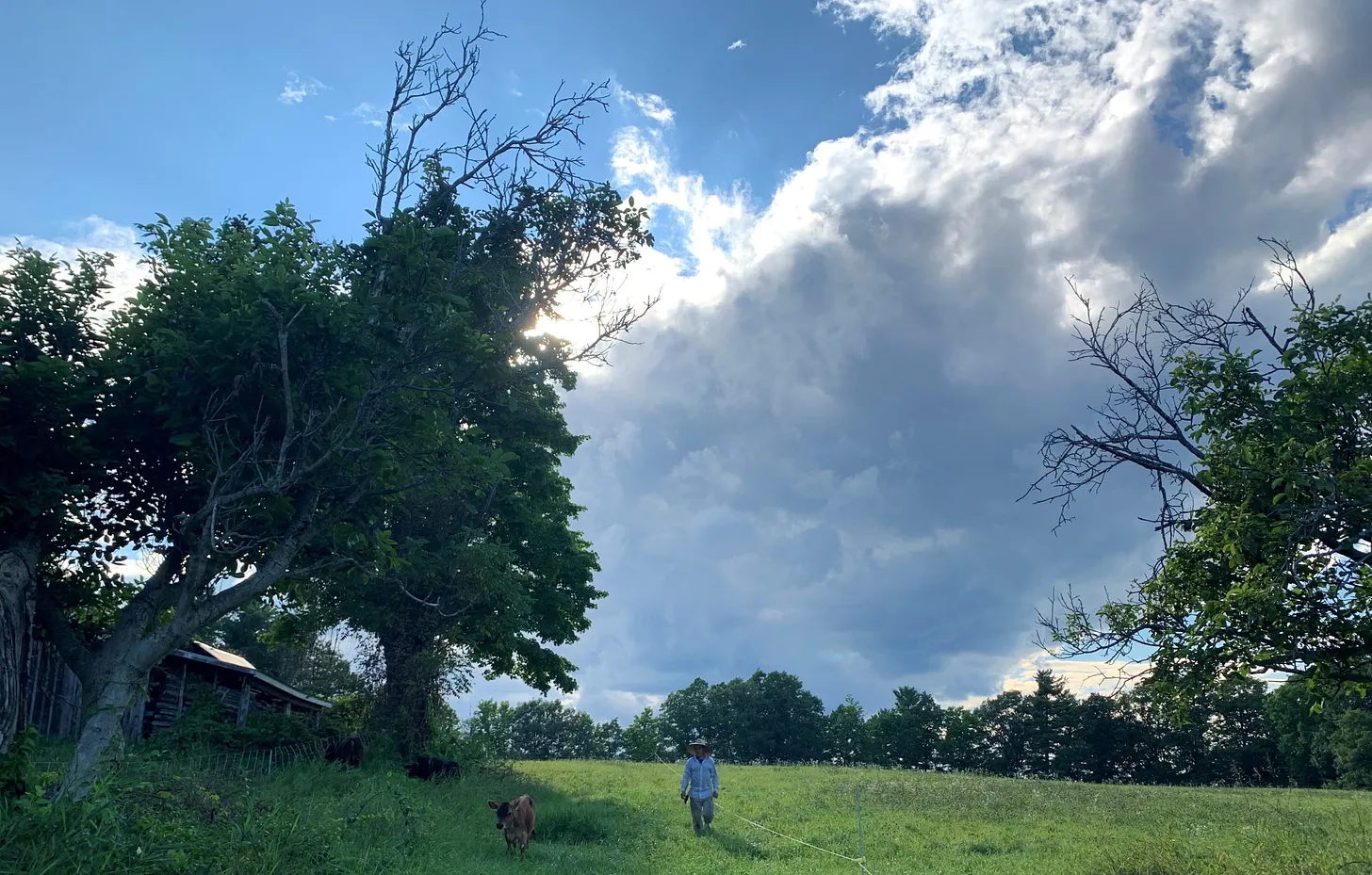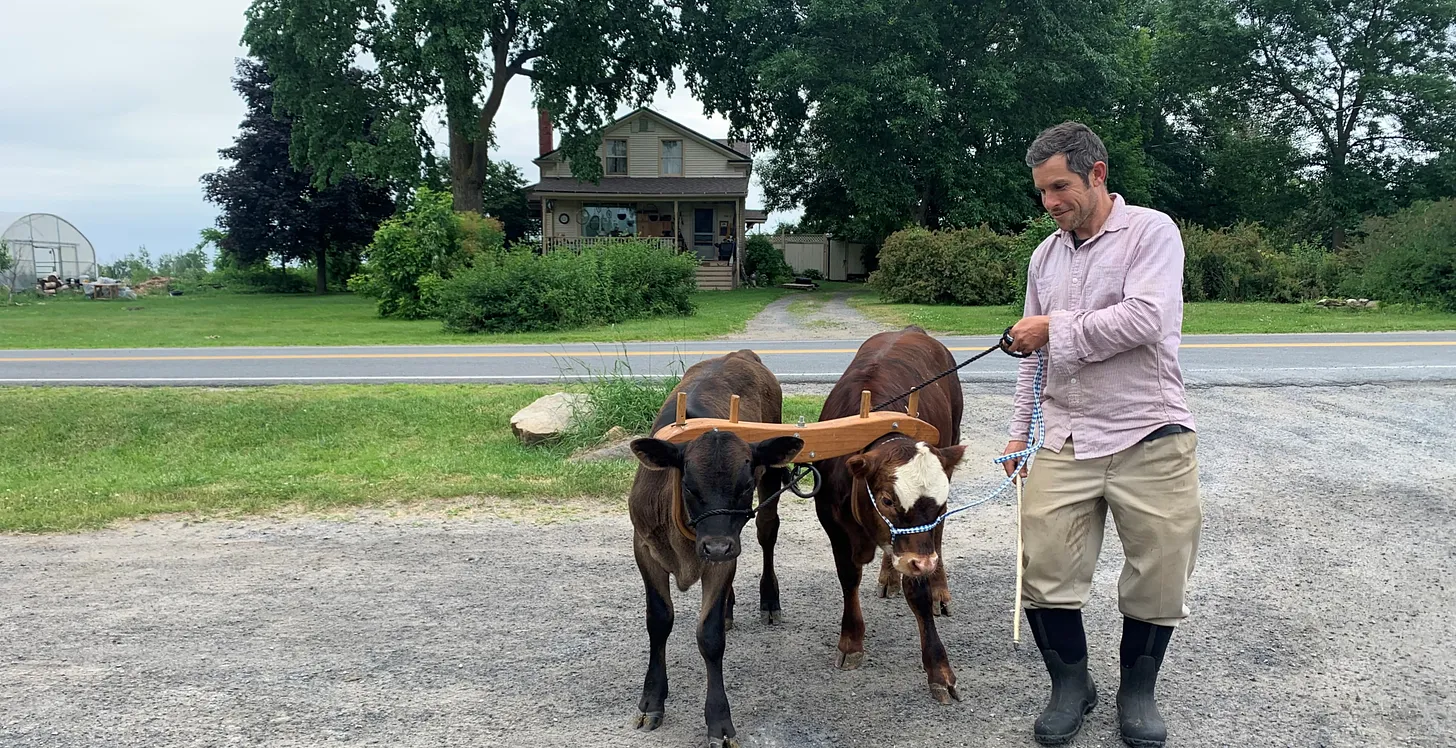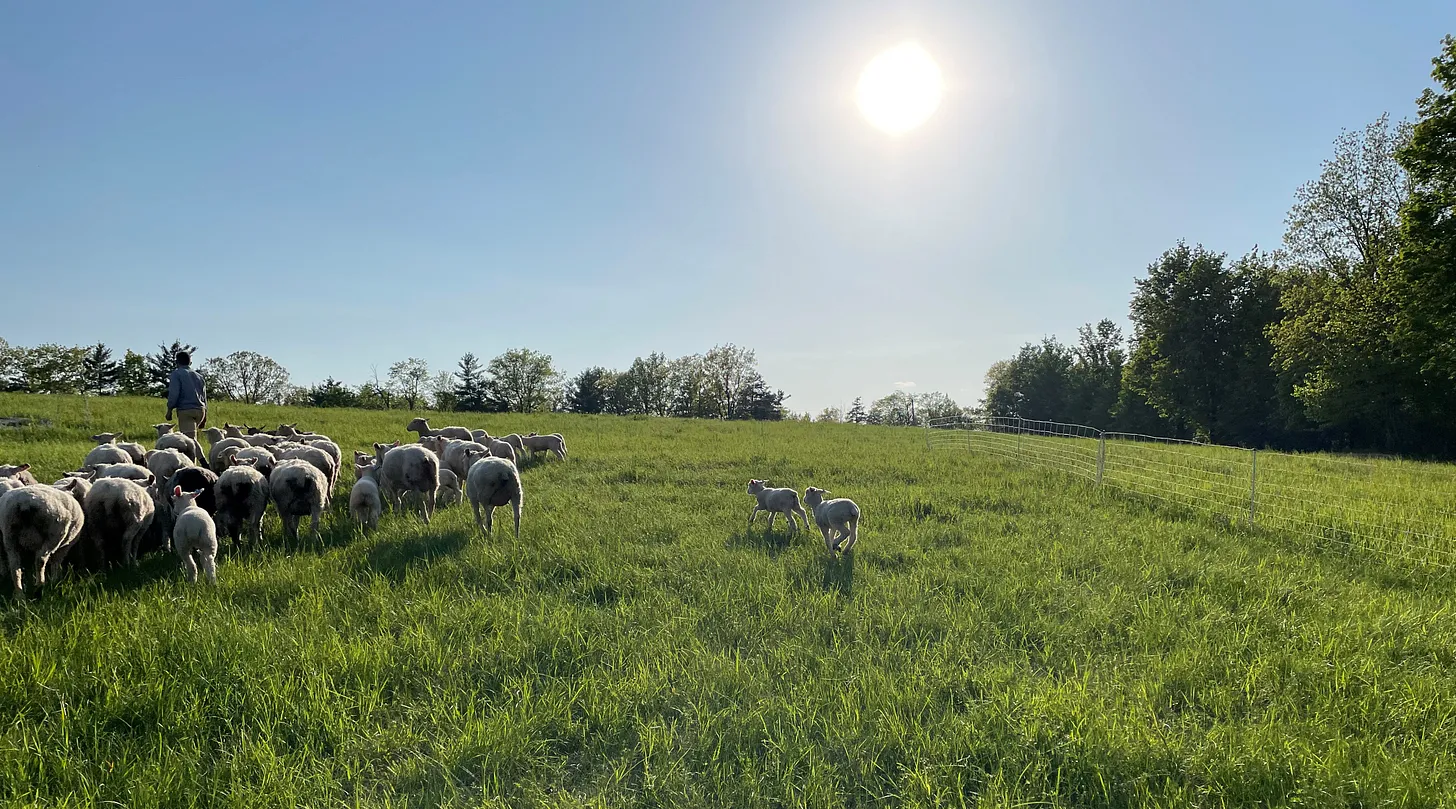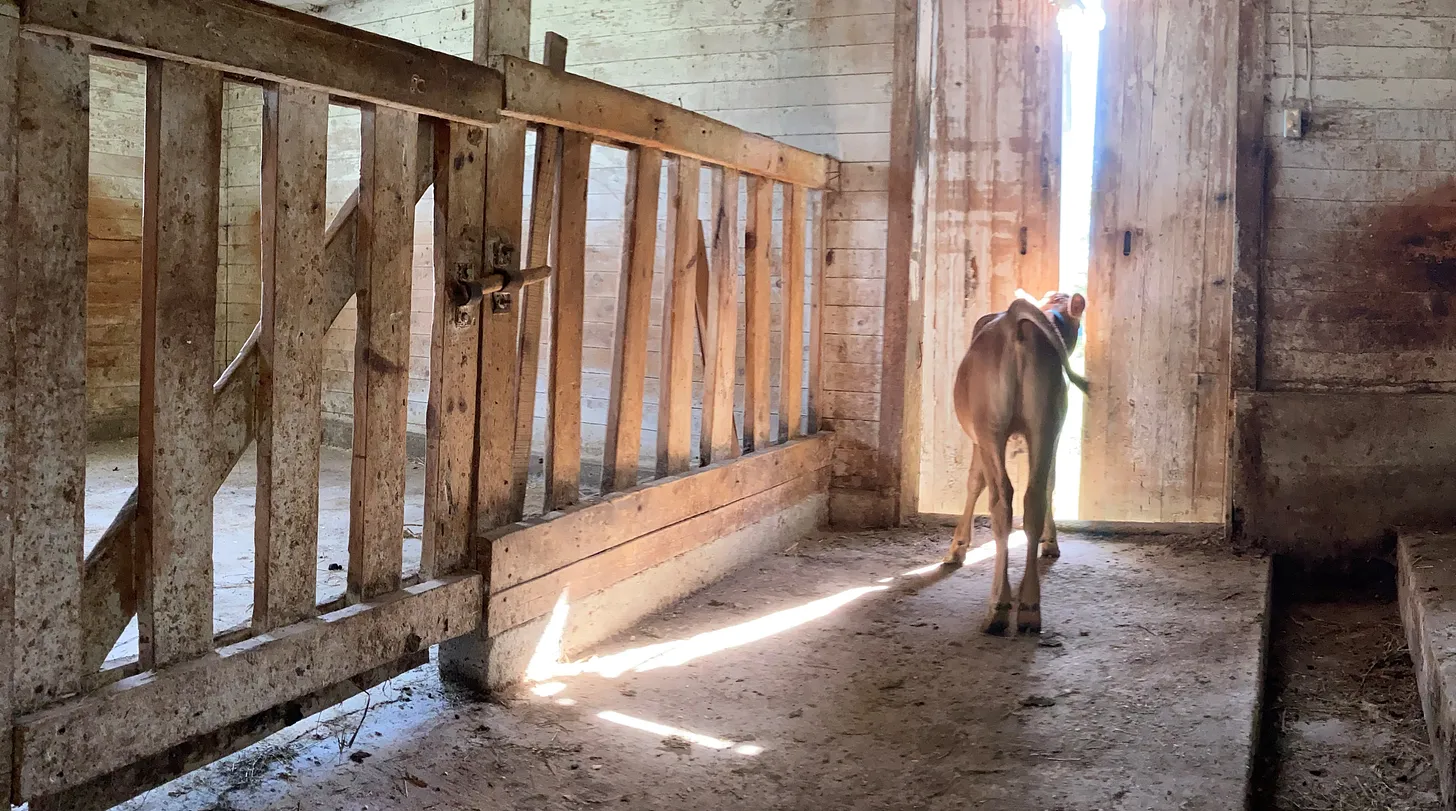"This food is offered as a gift to anyone who is hungry for any reason."
Sand River Community Farm sits on a sandy hilltop above a lazy bend in the Ausable River. The Farm grows grass, vegetables and fruits, sheep, cattle and community.
Long home to the Mohawk and Western Abenaki people, this unceded land was given to Matthew Adgate by the State of New York after the Revolutionary War and remained in the Adgate-Schermerhorn family until the last caretaker of that lineage, Henry Schermerhorn, died in the old farmhouse in 2004.
The Farm sat quietly rewilding for seventeen years, until a single community member stepped forward and offered $500K of inherited family money to disentangle the Farm from the real estate market. This would be the first and last time the Farm would ever be sold.


The gift-giver, named Ava, entrusted Adam Wilson with the title with no strings attached except the request that he proceed as if he could be worthy of such trust - that he could be trustworthy.
This is a surprisingly demanding task in our time. Being entrusted is very different from being entitled.
Adam had been experimenting with gift-based, non-market community farming and feeding about thirty miles away in Vermont for a few years. That project, which he cofounded, was called Brush Brook Community Farm.
The enormous responsibility of being "entrusted" with land has informed the work at Sand River Community Farm, to create some sort of modern "commons." Imagining a "commons" in a time where nearly every formerly-common-good and every formerly-neighborly-service has been turned into a commodity to be bought and sold is no small task. Changing the structure of the deed on an old Farm doesn't magically flip a switch in our brains and hearts.
Adam describes, "If I were to sell you a pound of lamb, I would be trafficking in the illusion that the animal's body - a miraculous bundle of sunlight, soil and rainfall - was 'mine.' Once you handed me the requested number of dollars, it would become 'yours.' At some point I stopped being able to see it that way. At some point my heart could no longer bear that story."


Just a few generations ago everyone ate local food and almost everyone participated in that growing. If food wasn't raised sustainably, there simply wouldn't continue to be food. Sustainability wasn't abstract back then, and that wasn't that long ago.
It's not so much that a return to sustainably raised, local food will be "too expensive." The payment this food asks is our attention - turning our gazes back toward a complex web of interspecies relationships that have been forsaken for the limitless and lifeless aisles of the grocery store. The story of more-of-everything-all-the-time went down easy for a while, but the heartburn is coming on fast.
The devastating loss of local farmers runs in parallel with the breakdown of local communities, a deepening loneliness epidemic and the rapid deterioration of the planet's capacity to sustain life.
How did human beings allow themselves to be reduced to consumers? How did we stay alive before we were consumers? How did we neighbor back then?
Sand River Community Farm offers no grand plan for re-working the food system or overthrowing "the market."
Rather, giving food as a gift invites us to encounter "the market" that lives within us, the one that suggests it would be safest to become self-reliant and, ultimately, alone. Remembering our capacity for mutually sustaining relationships seems to be, quite literally, an act of re-membering.
At Sand River Community Farm, this intimate, conversational work begins by inviting the neighbors over for supper and serving the food family-style.
